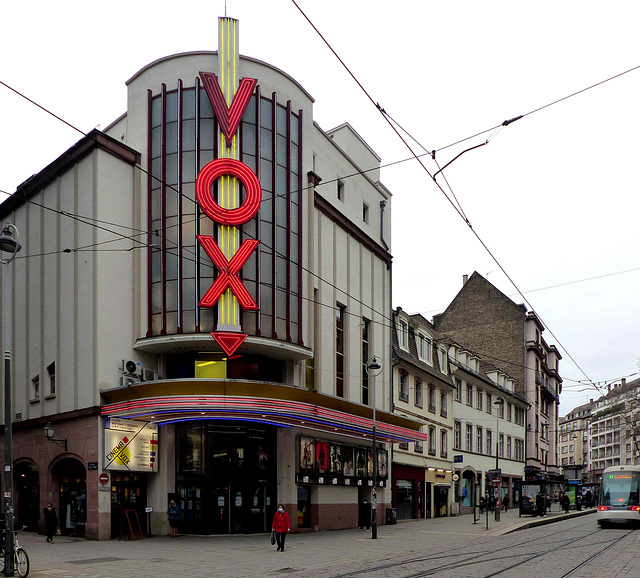Strasbourg - Boulangerie-Pâtisserie "Lenhardt"
Strasbourg - Rue Merciere
Strasbourg - Place de la Cathédrale
Strasbourg - Cathédrale Notre-Dame
Strasbourg - Cathédrale Notre-Dame
Strasbourg - Cathédrale Notre-Dame
Strasbourg - Cathédrale Notre-Dame
Strasbourg - Cathédrale Notre-Dame
Strasbourg - Cathédrale Notre-Dame
Strasbourg - Cathédrale Notre-Dame
Strasbourg - Cathédrale Notre-Dame
Strasbourg - Cathédrale Notre-Dame
Strasbourg - Cathédrale Notre-Dame
Strasbourg - Cathédrale Notre-Dame
Strasbourg - Cathédrale Notre-Dame
Strasbourg - Cathédrale Notre-Dame
Strasbourg - Saint-Thomas
Strasbourg - La Petit France
Strasbourg - Saint-Thomas
Strasbourg - Saint-Thomas
Strasbourg - Saint-Thomas
Strasbourg - Saint-Thomas
Strasbourg - Saint-Thomas
Strasbourg - La Petite France
Strasbourg - Saint-Thomas
Strasbourg - Saint-Thomas
il ne se baigne pas
Villeneuvette - Manufacture Royale
Villeneuvette - Manufacture Royale
IMG 7078
IMG 7077
IMG 7076
IMG 7075
IMG 7074
IMG 7073
IMG 7072
IMG 7071
IMG 7070
IMG 7069
IMG 7068
IMG 7067
IMG 7066
IMG 7063
IMG 7062
IMG 7061
IMG 7060
IMG 7057
IMG 7056
Location
See also...
Keywords
Authorizations, license
-
Visible by: Everyone -
All rights reserved
-
55 visits
Strasbourg - Cinéma Vox


When Strasbourg was first mentioned in 12BC, it was the Roman camp Argentoratum. Strasbourg was probably a bishop's seat from the 4th century. Alemanni, Huns and Franks conquered the city in the 5th century. Strasbourg was then ruled by the Strasbourg bishops until 1262 when the citizens violently rebelled against the bishopric and Strasbourg became a free imperial city and so belonged to the Holy Roman Empire. Led by two rival patrician families (Müllheim and Zorn), the city prospered, although the town hall required two separate entrances for the two families.
On February 14, 1349, one of the first and largest pogroms of persecution of Jews in connection with the plague in the German area took place here. In the course of the St. Valentine's Day massacre, several hundred (some say up to 3000) Jews were publicly burned, and the survivors were expelled from the city. Until the end of the 18th century, Jews were forbidden to stay within the city walls after 10 pm.
Strasbourg came under French rule in 1681, after the conquest of Alsace by the armies of Louis XIV. However, the revocation of the Edict of Toleration of Nantes in 1685, which legalized the suppression of Protestantism in France, did not apply in Alsace, and religious freedom prevailed, even if the French authorities endeavored to favor Catholicism wherever possible.
Strasbourg's Lutheran, German-influenced university continued to exist. Moreover, until 1789, Alsace was a de facto foreign province , separated from the rest of France by a customs border running along the Vosges Mountains. Therefore, the city and its surrounding area remained German-speaking. In the period of the French Revolution, the city became attractive for republicans from Germany and later an exile for German oppositionists.
www.cine-vox.com
On February 14, 1349, one of the first and largest pogroms of persecution of Jews in connection with the plague in the German area took place here. In the course of the St. Valentine's Day massacre, several hundred (some say up to 3000) Jews were publicly burned, and the survivors were expelled from the city. Until the end of the 18th century, Jews were forbidden to stay within the city walls after 10 pm.
Strasbourg came under French rule in 1681, after the conquest of Alsace by the armies of Louis XIV. However, the revocation of the Edict of Toleration of Nantes in 1685, which legalized the suppression of Protestantism in France, did not apply in Alsace, and religious freedom prevailed, even if the French authorities endeavored to favor Catholicism wherever possible.
Strasbourg's Lutheran, German-influenced university continued to exist. Moreover, until 1789, Alsace was a de facto foreign province , separated from the rest of France by a customs border running along the Vosges Mountains. Therefore, the city and its surrounding area remained German-speaking. In the period of the French Revolution, the city became attractive for republicans from Germany and later an exile for German oppositionists.
www.cine-vox.com
Marco F. Delminho, kiiti, Paolo Tanino have particularly liked this photo
- Keyboard shortcuts:
Jump to top
RSS feed- Latest comments - Subscribe to the comment feeds of this photo
- ipernity © 2007-2024
- Help & Contact
|
Club news
|
About ipernity
|
History |
ipernity Club & Prices |
Guide of good conduct
Donate | Group guidelines | Privacy policy | Terms of use | Statutes | In memoria -
Facebook
Twitter

Sign-in to write a comment.